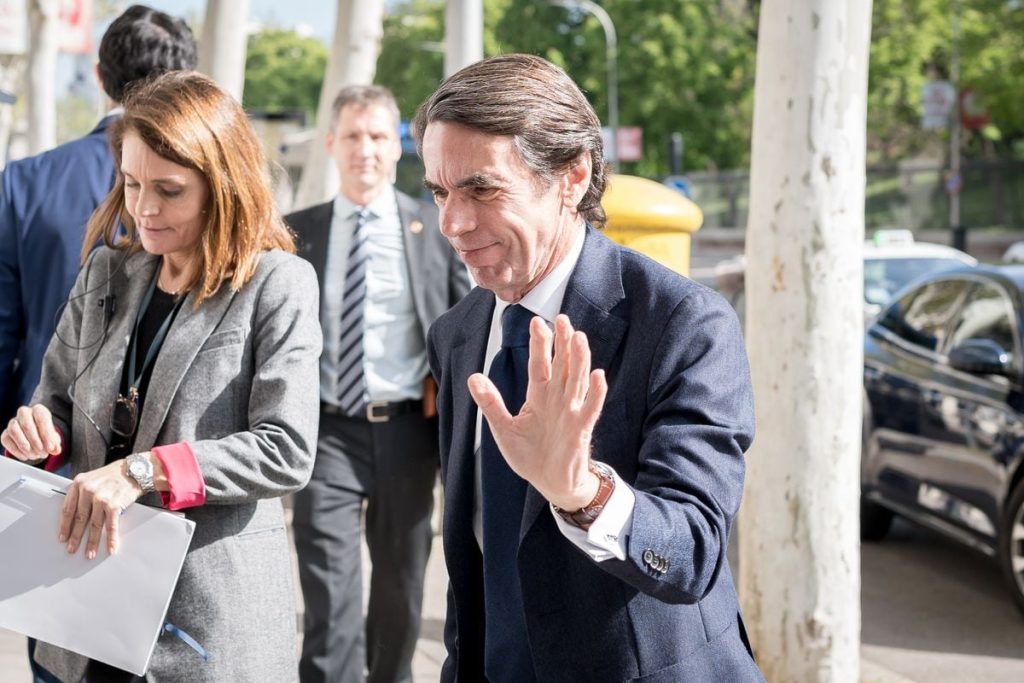The Prime Minister of Spain, Pedro Sánchez, is determined to recognize Palestine as a state before the summer and to push for a solution to the conflict with Israel on the international stage, both at the United Nations and in the European Union. However, this position does not currently have the almost unanimous support that the previous initiative on this issue received, which was debated in Congress in 2014 during Mariano Rajoy’s government. The PP doubts that the current situation, with the war in Israel in Gaza, is the best time to take this step, and they complain that the government is not informing them. The government does have the enthusiastic support of its usual partners in Congress (Sumar, Podemos, Compromís, EH Bildu, ERC, PNV, and the BNG), who even push for more decisive action against the Israeli Prime Minister, Benjamin Netanyahu.
Pedro Sánchez has used his recent tour of several Arab countries to announce that he intends to accelerate the recognition of the Palestinian state. He stated that this will happen before the summer, around the European elections on June 9. The president also mentioned to journalists that there will be more movements regarding this issue soon: “We must be attentive to the decisions that will be made soon in Brussels and New York,” he said, referring to the role he wants to play both in the EU and the United Nations. The government has not yet specified the formula it intends to use to propose the recognition of the Palestinian state. Initially, La Moncloa leans towards a decision by the Council of Ministers and for the president to inform the Chamber about it. The matter has been brought to Parliament several times and, on the last occasion in November 2014, Congress passed a non-binding motion, agreed between the PP and the PSOE, which urged the government to make that gesture towards Palestine. It received almost unanimous support: 322 votes cast, 319 in favor, one abstention, and two votes against.
In that non-binding vote, two PP deputies who are still in the lower house now showed discomfort with the proposal. Agustín Conde from Toledo voted against it and Ricardo Tarno from Seville abstained. The current leadership of the PP has not yet publicly stated their position, among other reasons, because they have doubts about “the appropriateness of that initiative at this time of war in the area,” according to party sources. The PP complains that they have not received any direct information about President Sánchez’s plan. There have been no contacts from La Moncloa or the Ministry of Foreign Affairs, they lament. They emphasize that this behavior is not new and that they would like to know specific aspects before giving their support to such an internationally significant resolution in such a critical moment.
Former PP President José María Aznar expressed an even more stringent position on Thursday: “Those who support the creation of a Palestinian state, to which state are they referring? That does not exist,” he said at a conference organized by his Foundation for Analysis and Social Studies (FAES). He added, “Recognizing what does not exist is absurd.” In Feijóo’s PP, they acknowledge that support for the two-state solution (Israel and Palestine) is widespread in Spanish society. They have observed this in recent demonstrations attended by their representatives in Madrid: barely two hundred people attended the rally in support of Israel in front of Congress, while thousands usually attend those in favor of Palestine. They consider the two-state solution to be the only possible solution, but believe that greater stability in the region, rather than war, is necessary for it to succeed.
Feijóo is waiting to gather more information with his experts before making a public statement but, for now, he does find it concerning that in such a serious and significant humanitarian issue, no one from the government has reached out to him to discuss the measure, sources from his circle say. They recall how a similar proposition was crafted in November 2014. The then Foreign Minister, the PP’s José Manuel García Margallo, negotiated the resolution text with his predecessor from the PSOE, Trinidad Jiménez, and there was mostly consensus during the debate in Congress. Margallo expressed the hope that the historic session would help “unblock a negotiation process that has been stuck for many years.” Trinidad Jiménez highlighted that the recognition of the Palestinian state is the best resolution to promote peace.
In the current Congress, if a vote were to be held on this issue, the PSOE would have a strong majority of votes for their initiative to prosper, although probably not with the unanimity of before. This week, spokespeople from Sumar, Podemos, Compromís, and other parties even argued that the government was late with its proposal and could be more courageous. A representative from Podemos criticized Sánchez for taking so long to act and for not daring to bring the Israeli Prime Minister to the International Criminal Court for genocide. Feijóo’s PP hopes for more involvement from Arab countries that resist recognizing Israel, something that Sánchez also attempted on his recent tour of the Middle East.


